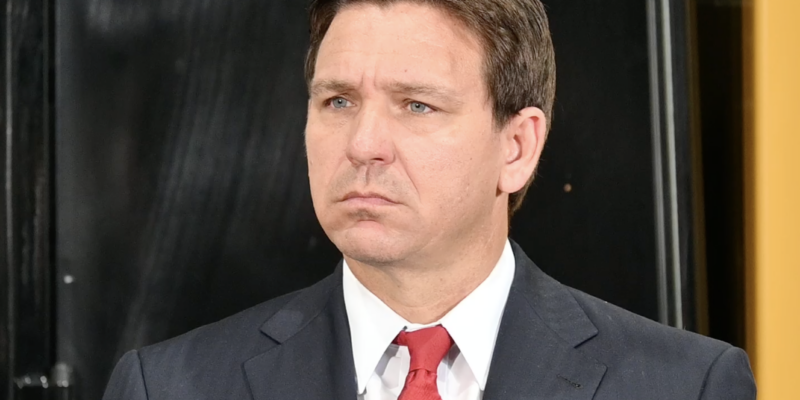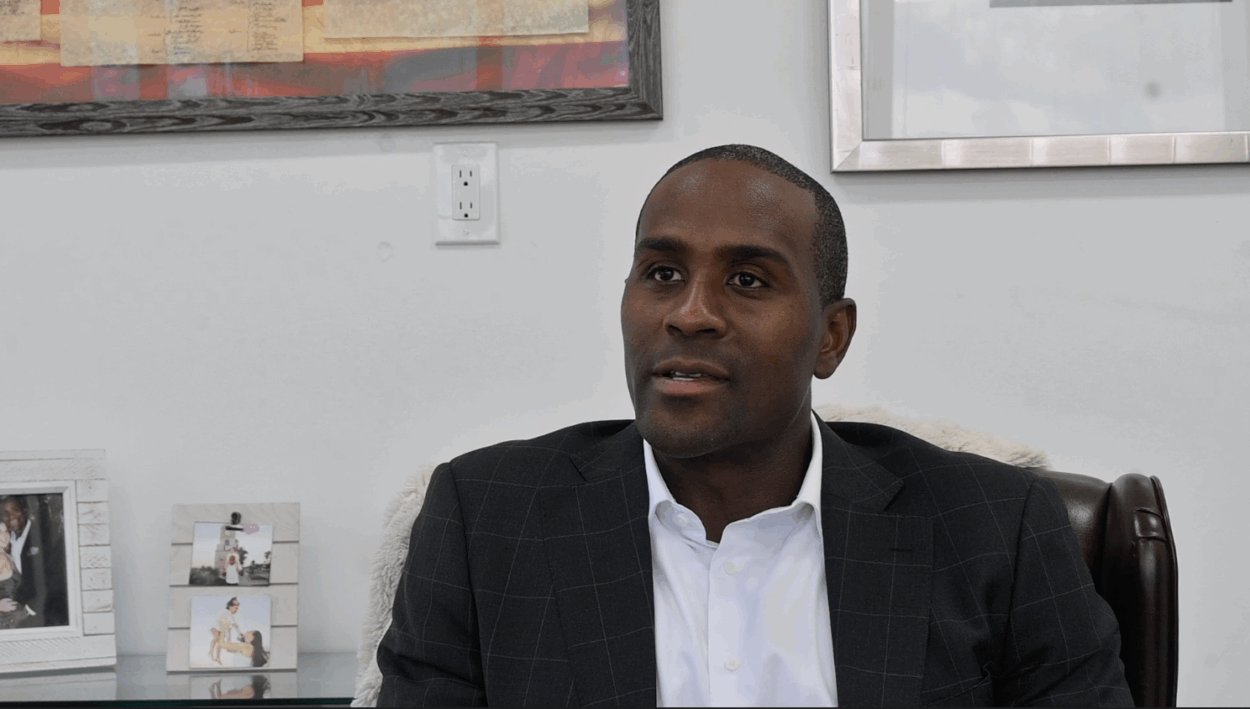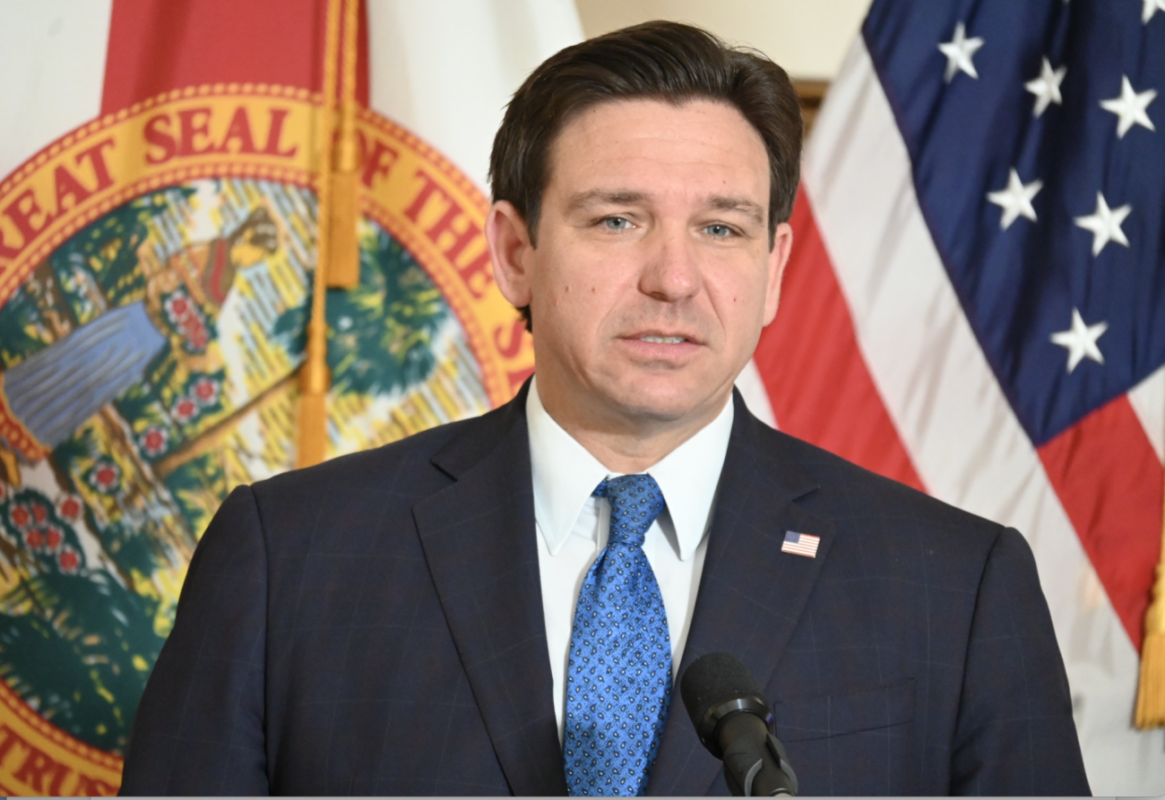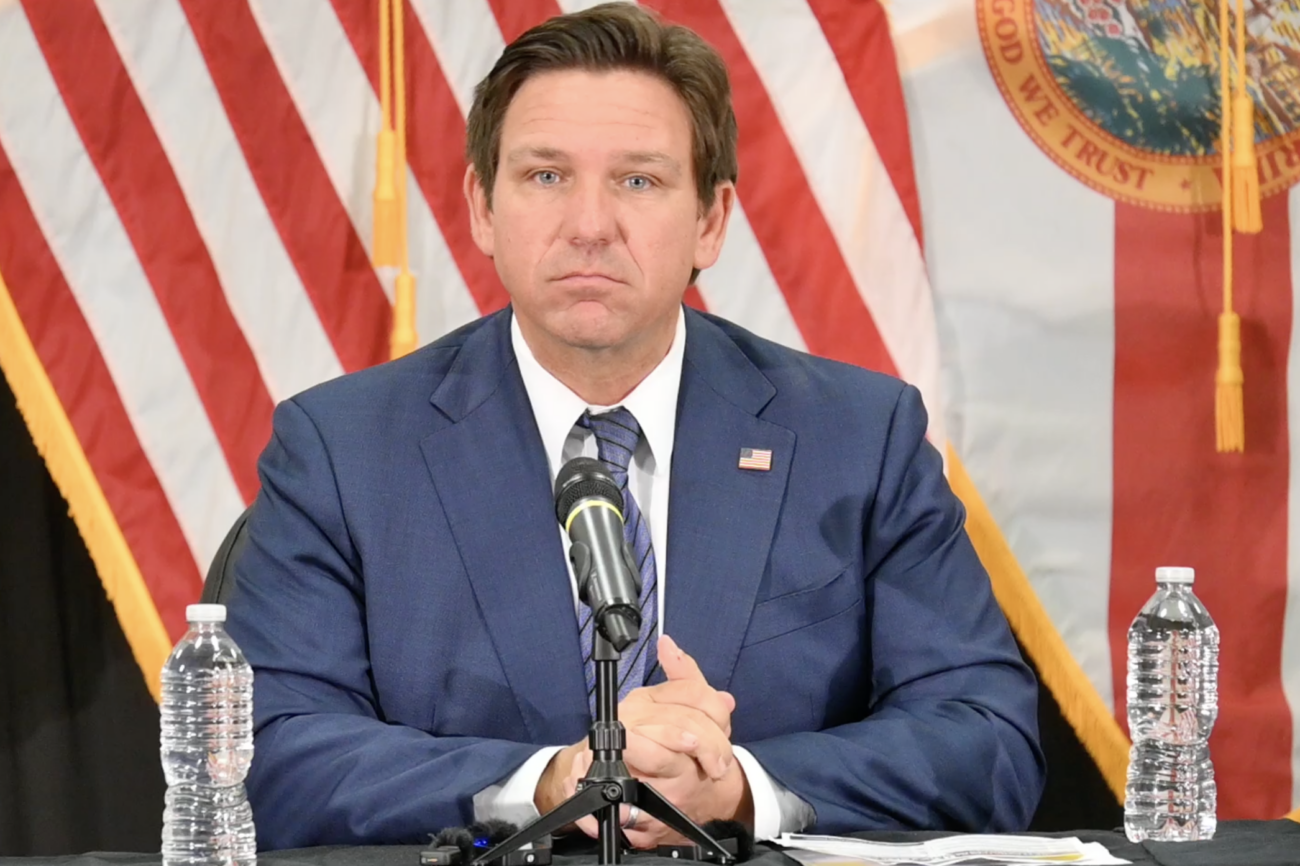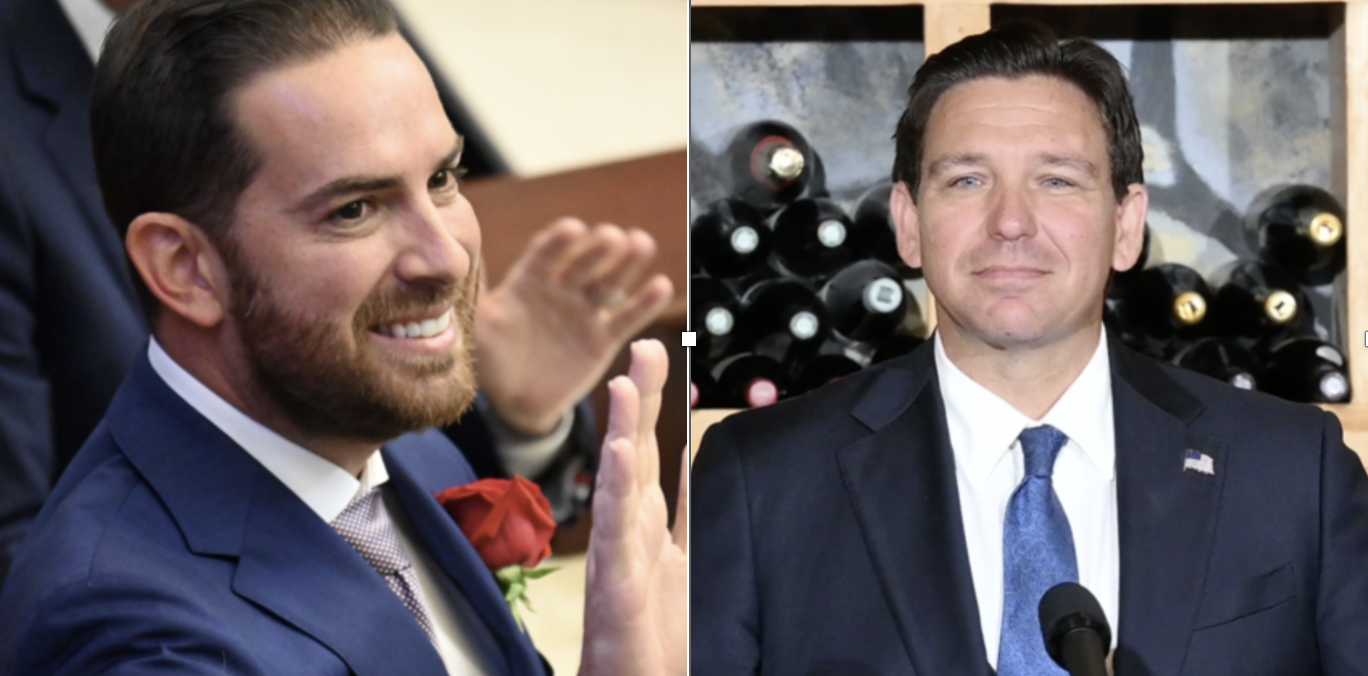Following the widespread destruction of Hurricane Helene, Gov. Ron DeSantis on Wednesday scathed the thousands of East Coast dockworkers and longshoremen who stopped working Tuesday as "unacceptable" after they went on strike in hopes of higher wages and automation protections.
As members of the International Longshoremen's Association (ILA), their work grinding to a halt will disrupt supply availability and cost as much as $5 billion per day, the Hill reported, which could have disastrous consequences in the wake of the deadly Category 4 Hurricane Helene, which destroyed numerous lives, homes, and businesses across six Southeastern states.
"I think it's totally unacceptable to try to intentionally deprive people of the supplies they need to be able to rebuild their homes when they've been displaced by a natural disaster," Gov. DeSantis said at a Madeira Beach press conference to update Floridians on hurricane damage control efforts. "We should be doing all we can, the federal government should be doing all they can, to make sure all the supplies continue to come in here unabated.
"Now is not the time," he continued. "You already have people that are reeling, people that are on their backs...let's do everything we can to accelerate their relief."
This is the first time in decades that the 45,000 dockworkers have gone on strike—protesting their stagnant wages in the face of spiking inflation and automation coming for their jobs—at 36 U.S. ports from Maine to Texas. Four are located in Florida, including JAXPORT in Jacksonville, Port Everglades in Fort Lauderdale, PortMiami, and Port Tampa Bay.
Companies like the U.S. Maritime Alliance (USMX) and the National Association of District Export Councils (NADEC) have expressed a willingness to negotiate, with the USMX even offering to raise wages by "nearly 50 percent"—though they're sticking firm to their language around automation.
For workers who fear losing their jobs to machines and robots, it's not enough.
This presents a unique political challenge for President Joe Biden, who has been highly supportive of labor unions and the ILA in particular. When asked if he would invoke the Taft-Harley Law, a 1947 rule letting the federal government drastically curb labor unions' power, Biden said he "doesn't believe" in the law.
DeSantis was not pleased.
"I'm committed to pulling whatever levers I can to make sure [supplies are delivered] but I think it would be a really, really bad look for the Biden-Harris administration to allow supplies to just be sitting in the Atlantic ocean," he said, stressing that Americans impacted by Helene will need as much help as they can get.
"If all of a sudden this stuff starts getting backed up and it starts getting delayed days, weeks, or even more, that's going to be intolerable," he began. "We have an emergency situation in our country...We should be doing all we can as Americans to make sure that the supplies are continuing to be delivered to our ports."
Hurricane Helene first hit Dekle Beach, Florida, as a Category 4 storm just shy of midnight on Thursday. It traveled through the Southeast as a weakened storm, though it managed to knock out millions of peoples' power from Florida through Ohio and Indiana. As of Wednesday afternoon, over 1.2 million people are still without power, the majority of which live in South Carolina (over 476,000 have no electricity).
The storm's death toll has now reached 175 people nationwide, 90 of whom lived in North Carolina—one of the most impacted states.

